Foods High in Leucine and Leucine Benefits for Runners
- April 3, 2020
- Last Updated: March 5, 2023
- 5 Comments
- Sports Nutrition
Wondering if you should take a leucine supplement post-workout? Or what foods are high in leucine? What does leucine do, anyway? This article breaks it all down!

As an Amazon Associate, I may earn from qualifying purchases. You can read more here on our Disclaimer and Privacy Page.
As an athlete or active individual, you may be interested in taking supplements for runners or looking for anything that can help you to improve your athletic performance or to enhance your recovery from exercise.
This post is going to focus on leucine and whether or not it may benefit runners, in particular.
I first heard about leucine a few years ago when reading up about post-workout nutrition. It was interesting to learn more about this branched-chain amino acid, which I previously hadn’t thought too much about.
I can’t wait to share more about it with you today as this has come up in some client sessions.
In This Article
Protein Needs For Athletes
Before we talk about leucine, specifically, it’s important to understand protein for endurance athletes and strength athletes. Obviously, athletes have higher protein needs than non-athletes because they are demanding more from their bodies.
Therefore, it takes more energy to contract muscles, recover and much more.
Leucine is a branched-chain amino acid (BCAA). Amino acids are what form proteins in the body. Therefore, leucine is a building block of protein.
More specifically, leucine is an essential amino acid, meaning your body cannot produce it on its own. Therefore it must be consumed via food or supplements.
Leucine is often found in protein powders. I broke down the best protein powders for runners in this post.
More About Branched Chain Amino Acids (BCAAs)
BCAAs are a common supplement that people take when trying to build lean muscle, reduce muscle soreness, and recover from exercise or injury. BCAA for runners can be advantageous, too, especially if the diet is not adequate in protein.
Leucine is an important factor in muscle protein synthesis (MPS), which is the pathway for muscle growth and repair, which is important in the foundation of sports nutrition.
Consuming enough protein, in general, is important for athletes because protein is the building block of our muscles and therefore our bodies.
As we age, we begin to lose muscle mass, and consuming enough protein along with engaging in regular exercise can help us to slow this process down.
If you are looking to gain lean muscle mass, protein intake and strength training exercises will help you to do so. Try these arm exercises for runners for a start!
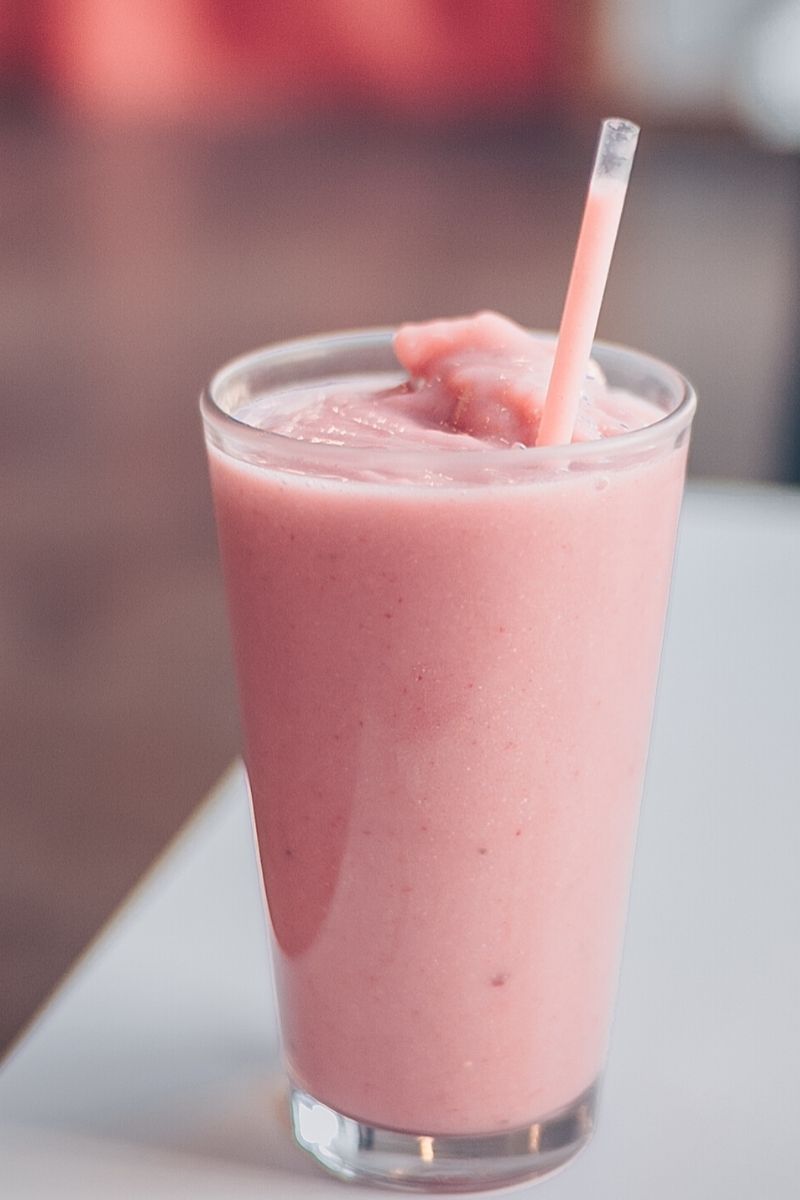
Benefits of Leucine
Some benefits of leucine include:
- Increased muscle growth and repair
- Decreased muscle soreness
- Less fatigue during and after exercise
- Prevent muscle breakdown
- Blood sugar regulation
- Growth hormone production
A 2011 study set out to determine whether supplementation with leucine during steady state exercise (like running) affects muscle protein synthesis.
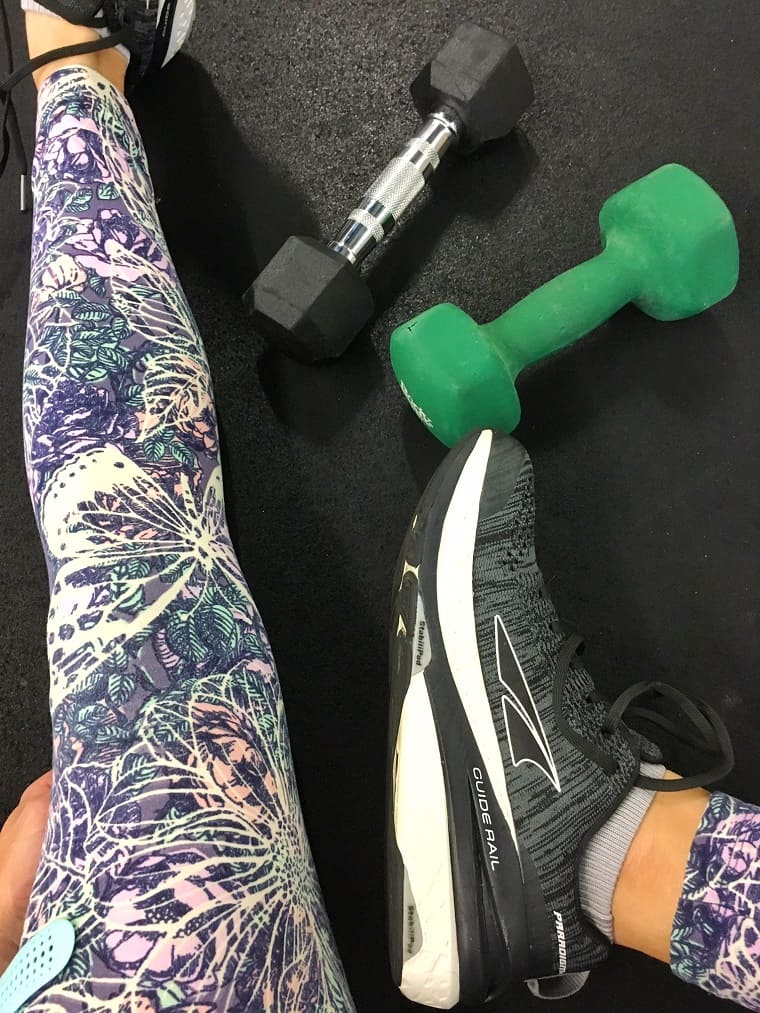
They found that muscle protein synthesis was 33% higher in the recovery period among the group that consumed an essential amino acid blend with higher amounts of leucine vs the group consuming a blend with lower amounts.
They also found lower amounts of whole body protein breakdown (Pasiakos, et al, 2011).
However, not all research has shown consistent benefits.
Research published in the journal, Amino Acids, found that while the group supplemented with leucine did have higher amounts of leucine concentrations in their blood as compared to the placebo group, they did not exhibit any differences in acute strength or running performance (Pikanen et al, 2003).
Foods High in Leucine
Many people are curious about leucine food sources once they understand how important it can be for muscle growth and repair and prevention of muscle breakdown.
The best leucine sources include animal-based protein foods, like:
- beef
- pork
- chicken
- turkey
- fish
- eggs (eggs for runners can be a great protein source!)
- dairy products – cottage cheese, yogurt, cheese, whey protein
- peanut butter (or peanut butter flour)
- some protein powders and protein shakes
This is why we subscribe to Butcher Box – we get leucine-rich quality meats delievered to us.
SAVE $50 WHEN YOU TRY BUTCHER BOX TODAY! Butcher Box sends you nourishing, grass-fed, organic meat and seafood. My personal favorites are the wild caught salmon, organic free range diced chicken breast, and beef barbacoa. We have so many recipes with these nutritious, delicious ingredients, like this salmon below.
Save $50 on your Butcher Box order!
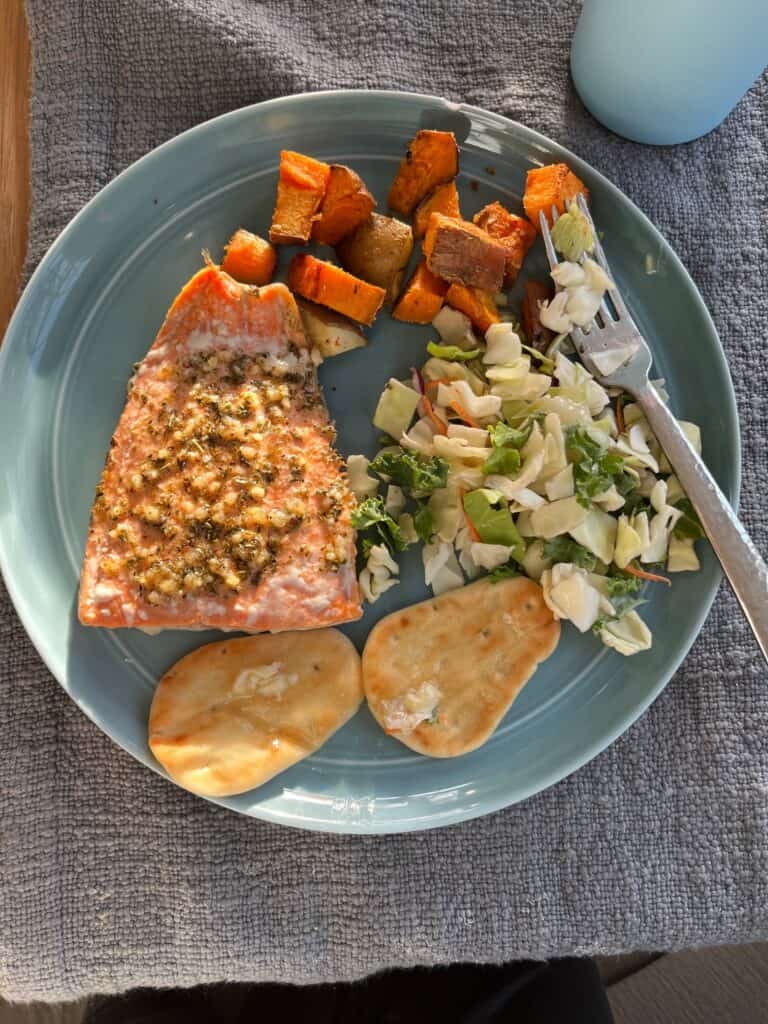
If you’re worried about where to get leucine if you don’t eat animal products, there are some plant-based proteins that provide leucine food sources, like soy and quinoa. They also provide all the essential amino acids.
More on that below in the section for vegetarian or vegan athletes.
There are many animal-based and plant-based sources of leucine on this athletes grocery list that would be a great addition to a marathon eating plan.
Like leucine, protein is the main food group that is best utilized by the body in doses spread out across the day rather than at one or two large meals (Schoenfeld and Aragon, 2018).
Ideally, we are consuming protein at each meal or every three to four hours throughout the day.
This is a general recommendation and will need to be tailored to each individual depending on their body size, training schedule, and goals.
How Much Leucine Should You Take? And When?
The best time to take leucine is after a workout as part of your post workout nutrition, when the muscles have been broken down and are most receptive to the fuel coming in.
Protein plays a key role in full and half marathon recovery.
If you’re a morning workout person, make your breakfast count. These healthy breakfast ideas for athletes are nutritionally sound.
You’ll also want lunch to be adequate – these lunches for runners are also high in carbohydrates to aid in recovery and energy maintenance.
Post-workout nutrition recommendations for recovery vary depending on a person’s body size, training type and amount, and their goals.
Post-workout protein recommendations usually fall between 20-40 grams for muscle recovery and growth. Of that 20-40 grams, you ideally want 1-3 grams of leucine (Jager, et al, 2017).
This high protein overnight oats recipe is very leucine rich!

As mentioned in the International Journal of Food Sciences and Nutrition, “For optimal stimulation of muscle protein synthesis, recent data suggest an intake of 20–25 g protein following resistance exercise. This corresponds approximately to 8.5 g of EAA or 1.5 g leucine, which is approximately the amount shown to maximally stimulate protein synthesis” (Phillips, 2011).
For muscle recovery and growth, consuming a leucine-rich snack or meal post-workout and before bed may be beneficial.
Examples include a fruit smoothie with greek yogurt and/or protein powder or a balanced meal of grilled chicken breast, pasta, veggies, and cheese.
What About Other Amino Acids or BCAAs?
All of the amino acids are important, especially the 9 essential amino acids, which include:
- Histidine
- Isoleucine (BCAA)
- Leucine (BCAA)
- Lysine
- Methionine
- Phenylalanine
- Threonine
- Tryptophan
- Valine (BCAA)
The BCAAs may increase muscle growth and recovery for runners and active individuals. However, supplements are meant to supplement a balanced diet.
I would recommend reviewing your current food and nutrition intake to ensure you’re getting adequate calories, carbs, protein, and fat for your training level and goals before turning to supplements.
If you are consuming adequate protein, and therefore BCAAs, in your diet, supplements are not likely to provide any additional benefits.
Taking a pre or post-workout supplement can be beneficial from a convenience standpoint of easy portability so that is definitely something to consider when pressed for time but still aiming to meet your recovery needs post-workout.
What About Vegetarian or Vegan Athletes?
What foods have leucine, apart from animal sources? Plant-based sources of leucine are not as easily absorbed and used by the body compared to animal-based sources.
However, plant based protein powders, like pea protein powder, is your next best bet.

If an athlete or active individual is following a vegetarian or vegan diet, they would require a higher protein intake (around 1.6 to 2.0 g/kg day) in order to ensure adequate digestibility and body usage.
Consuming a variety of plant-based protein foods can help ensure adequate intake of BCAAs. This post explains a variety of vegetarian protein sources.
For someone following a plant-based, vegetarian or vegan diet, I may recommend a leucine supplement, especially around exercise, depending on the client. These are my favorite vegan recipes for athletes.
Should You Consider a Leucine Supplement?
If you are consuming a well-balanced diet and meeting the general recommendations for protein, you don’t necessarily need to take a leucine or BCAA supplement.
If someone is not getting enough protein, however, I would suggest looking at ways to add in more protein foods before immediately resorting to a supplement.
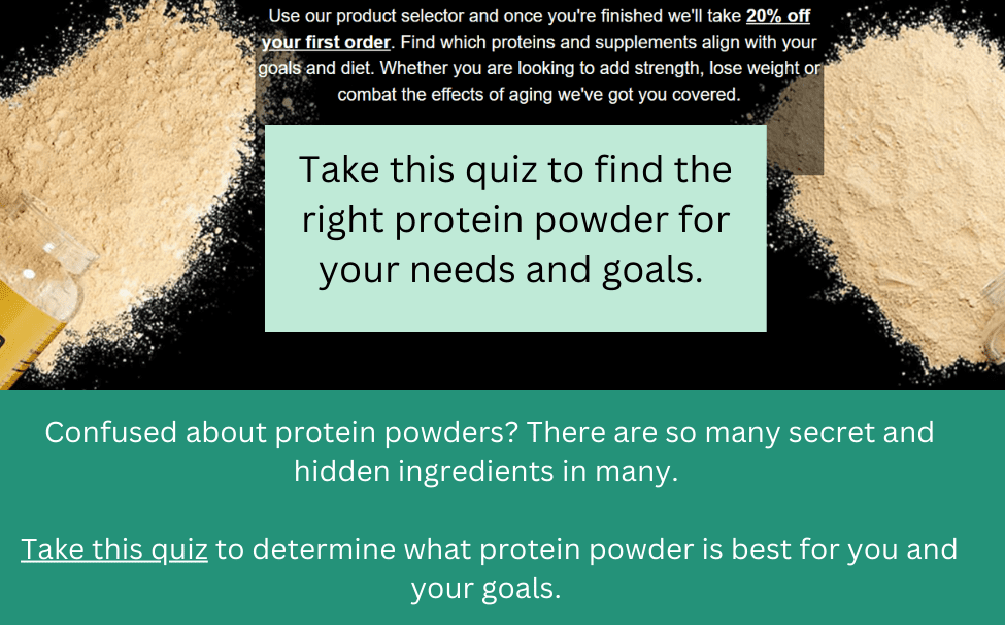
For someone with a high protein requirement, such as a very active individual or athlete, someone trying to gain muscle mass or increase body weight, or someone recovering from an injury, a leucine supplement may be beneficial to help reach protein and leucine requirements.
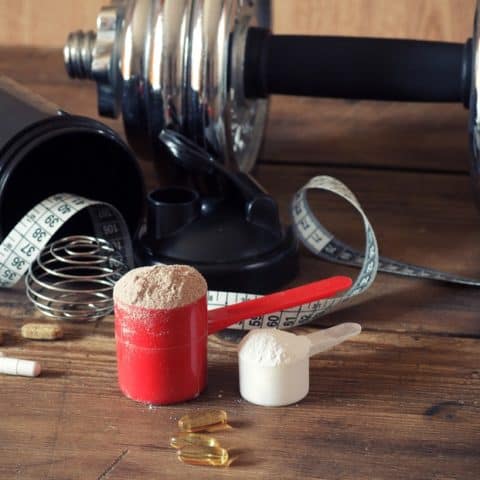
However, you always want to consult with a dietitian or professional before just taking supplements loosy goosy. The main thing to know about supplements is that the supplement industry is NOT well regulated like the food industry is in the USA. It is a $40 BILLION industry with more than 80,000 products out there.
So, the main concern is safety and legality. I always recommend getting products that are 3rd party tested. This means that an outside company (with no relationship to the product) has verified that what’s in the product is actually in the product and there are no unwanted ingredients in the product.
Look for NSF certified for sport marked supplements, especially for athletes who may be drug tested.
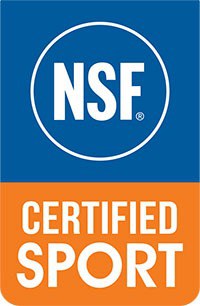
Leucine Benefits For Runners
There may be several leucine benefits for runners. Consider that many leucine-rich foods also provide other important nutrients that runners need, like protein, iron, zinc and B-12.
This post is helpful about why runners need more iron.

Plus, building on muscle can help with speed and endurance for runners. I would also add that taking leucine once and expecting results is likely a prudent method.
Instead, try incorporating it in your post run snack and meals consistently to see if you notice a difference.
There is little risk in doing so but it can also ensure you’re getting other essential nutrients, as listed above.
However, like anything, leucine is not a cure-all, so it should be approached as one tool in the toolbox rather than a complete solution. It’s best to work 1-1 with a sports dietitian or professional to find the best option suited to you and your nutrition and exercise needs.
You May Also Like
References:
Jager Ralf, et al. International Society of Sports Nutrition Position Stand: Protein and Exercise. J Int Soc Sports Nutr. 2017;14:20.
Pasiakos SM, McClung HL, McClung JP, Margolis LM, Andersen NE, Cloutier GJ, Pikosky MA, Rood JC, Fielding RA, Young AJ. (2011). Leucine-enriched essential amino acid supplementation during moderate steady state exercise enhances postexercise muscle protein synthesis. Am J Clin Nutr; 94(3):809-18.
Phillips SM. 2011. The science of muscle hypertrophy: making dietary protein count. Proc Nutr Soc 70:100–103.
Pitkänen HT, Oja SS, Rusko H, Nummela A, Komi PV, Saransaari P, Takala T, Mero AA. Leucine supplementation does not enhance acute strength or running performance but affects serum amino acid concentration. Amino Acids. 2003;25:85–94.
Schoenfeld BJ, Aragon AA. How much protein can the body use in a single meal for muscle-building? Implications for daily protein distribution. J Int Soc Sports Nutr. 2018;15:10.
Support Bucket List Tummy


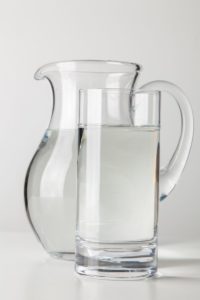
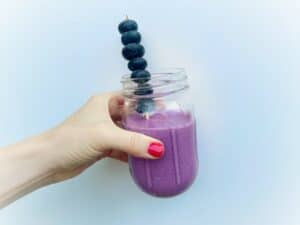

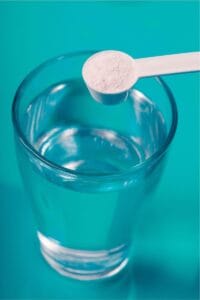

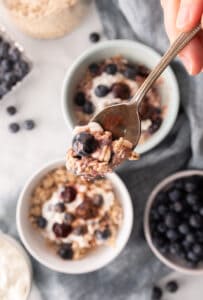














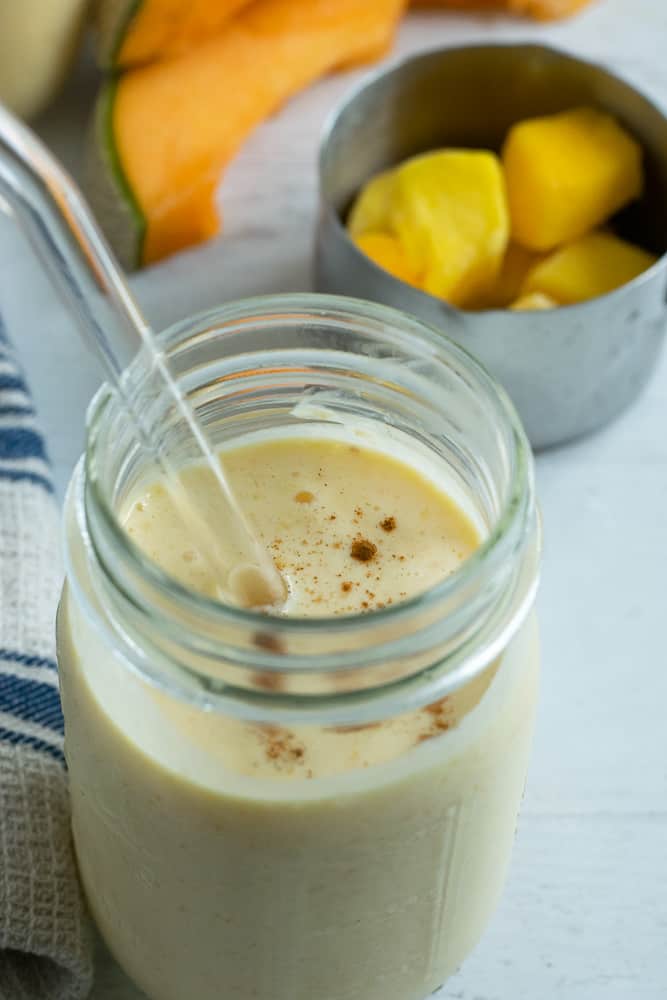



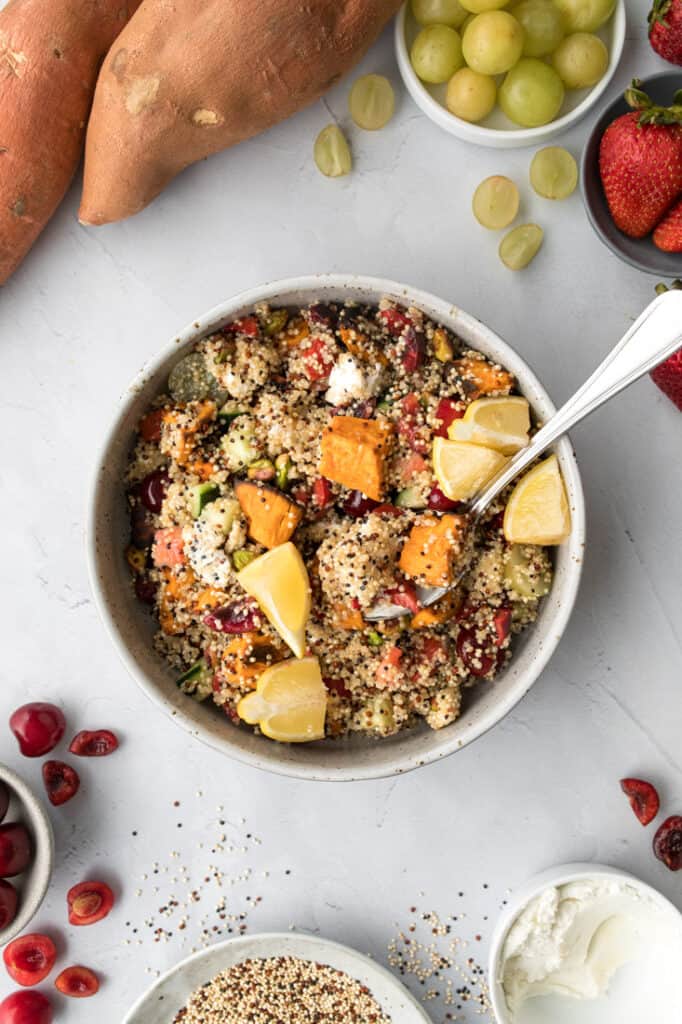

Like This Content?
Support Bucket List TummyI choose to get mine from Supplements. Has anyone tried to not use supplements and focus on a Bcaa diet?
That was a great information. I mean always used to think that taking BCAAs is all and I am gaining all my fitness benefits due to bcaas. It’s now that I actually focused on the different components of inside the BCAAs and this is so much insightful. Thank you.
So glad you found it helpful!
I’ve heard of BCAAs but not what the individual amino acids are. It’s nice there’s so many naturally occurring in a bunch of foods I eat.
Yes, a variety of foods!